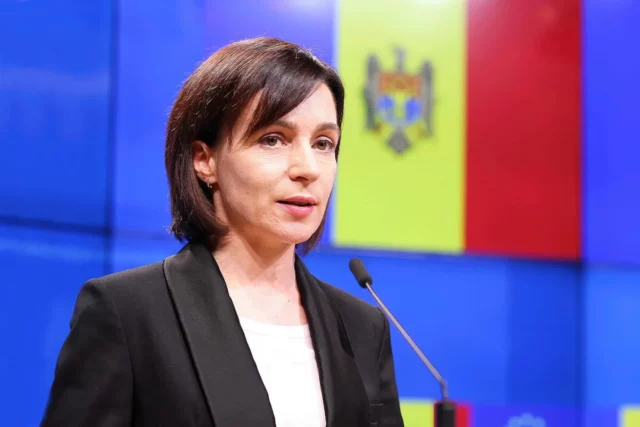
Moldova’s Bizarre Neutrality: No Obstacle to Western Security Assistance (Part Two)
Publication: Eurasia Daily Monitor Volume: 19 Issue: 124
By:

*To read Part One, please click here.
Any status of neutrality is subject to legal and political interpretations, within or outside the country in question, at any given time; all the more so when Moldova’s neutrality is uncodified by treaty and unrecognized internationally in any way. In Chisinau’s case, state weakness along with Western default have allowed Russia’s interpretation of Moldova’s neutrality to prevail de facto against international law or even Moldova’s own constitution (see EDM, August 11).
Russia insists that Moldova’s commitment to permanent neutrality is a key pre-condition (alongside Transnistria’s “special status”) to a putative withdrawal of Russian troops from Transnistria. The presence of troops there, however, directly contravenes Moldova’s existing constitutional neutrality and explicit ban on foreign troops. The Kremlin thus violates that same neutrality that Chisinau is supposed to permanently observe.
Practically all Moldovan governments until 2021 went along with this charade, accepting in word and deed the presence of Russian “peacekeeping” troops in Transnistria. This amounted, in effect, to exempting those “peacekeepers” from the obligation to vacate Moldova’s territory in accordance with international law. Chisinau’s de-facto acquiescence also amounted to breaching its own constitution. Aware of this, however, all Moldovan governments stopped short of legalizing Russia’s “peacekeepers” or any military presence. As a net result, Moscow, to this day, cannot invoke a legal basis to the stationing of its troops on Moldova’s territory. The current government, under President Maia Sandu, does not entertain political pre-conditions to the withdrawal of Russian troops and does not make exemptions for “peacekeepers.”
From Russia’s standpoint, Moldova’s permanent neutrality would also perpetually rule out Moldova’s unification with Romania. By the same token, it would preclude Moldova’s ultimate accession to the North Atlantic Treaty Organization (NATO) and European Union through the “back door” of Moldova‘s hypothetical unification with Romania.
Moscow regards the EU as increasingly taking on the characteristics of a security bloc, opposed to Russia and aligned with the United States. According to Russian Foreign Minister Sergei Lavrov, Ukraine’s and Moldova’s recently acquired status as EU membership candidates is incompatible with neutrality. The EU will require both states to demonstrate “full solidarity with the EU’s own anti-Russian actions.” And even if Ukraine and Moldova turn out to be “eternal candidates,” devoid of true membership prospects (as Lavrov predicts), the EU would still cast Ukraine and Moldova into “permanent roles as minor players in the West’s games” (Izvestiya, July 18).
In Moscow’s view, a neutral Moldova is not simply barred from cooperating with the NATO alliance, but it also may not receive Western security assistance from NATO member countries on a bilateral basis (i.e., Moldova must remain defenseless). Russia’s conception of neutrality for Moldova, as well as for Ukraine, implies that these countries may not join security groupings (including the EU) of which Russia itself is not a member.
Russia’s current political objectives in Moldova can to some extent be deduced from the local Russophile parties’ initiatives. These are the Socialist, Communist and Shor parliamentary parties. Following the Kremlin’s second invasion of Ukraine (February 2022), these parties warned Moldova’s pro-Western government to refrain from supporting Ukraine in almost any form: transferring or transiting military or dual-purpose materiel to Ukraine, condemning Russia’s war of aggression and participating in Western sanctions against Russia.
Beyond these minimal objectives, the Bloc of Communists and Socialists presented a draft law in parliament, “For the Consolidation of Moldova’s Neutrality.” This organic law (one requiring a three-fifths parliamentary majority to be approved or rescinded) would have: banned all forms of cooperation by Moldova with a military alliance; ruled out foreign military bases, “training or study centers with military or dual-purpose destination; forbidden transit of military equipment destined for parties in an ongoing conflict; and banned overflight by foreign airplanes or missiles.
This initiative’s stated goal was to preclude one-sided interpretations of Moldova‘s constitutional neutrality, including the possibility of receiving foreign military assistance. The barely concealed goal was to impose a strict constructionist interpretation of Chisinau’s neutrality, even more favorable to Russia in the context of the Ukraine war. The Moldovan government and parliamentary majority turned this initiative down on the grounds that “it could constrain the country’s opportunities to uphold its national security and defense and could create preconditions for Moldova’s international isolation” (IPN, May 11; TASS, May 4, 18).
Moldova’s Russophile parties habitually position themselves as watchdogs of Russia’s interests. Their barking also intends to raise the level of Moscow’s attention and funding to them.
Neutrality cuts both ways, not only blocking Moldova’s westward course but also precluding membership in the Russia-led Collective Security Treaty Organization (CSTO) or bilateral security arrangements with the Kremlin. This is a worthwhile trade-off for Russia to pursue, hence Moscow never showed an interest in bringing Chisinau directly into Russia’s orbit. The Kremlin’s interests in Moldova have been and remain confined to Transnistria, neutrality, a Russian voting stake in Moldova’s political system via Russophile parties and underwriting Moldova’s dysfunctionality and corruption to keep it mired in a gray zone between Russia and the West. The Kremlin‘s interests and priorities may, however, turn considerably more ambitious in the event that Russia forces its way through Ukraine to Odesa throughout the course of this war (see EDM, August 4).



